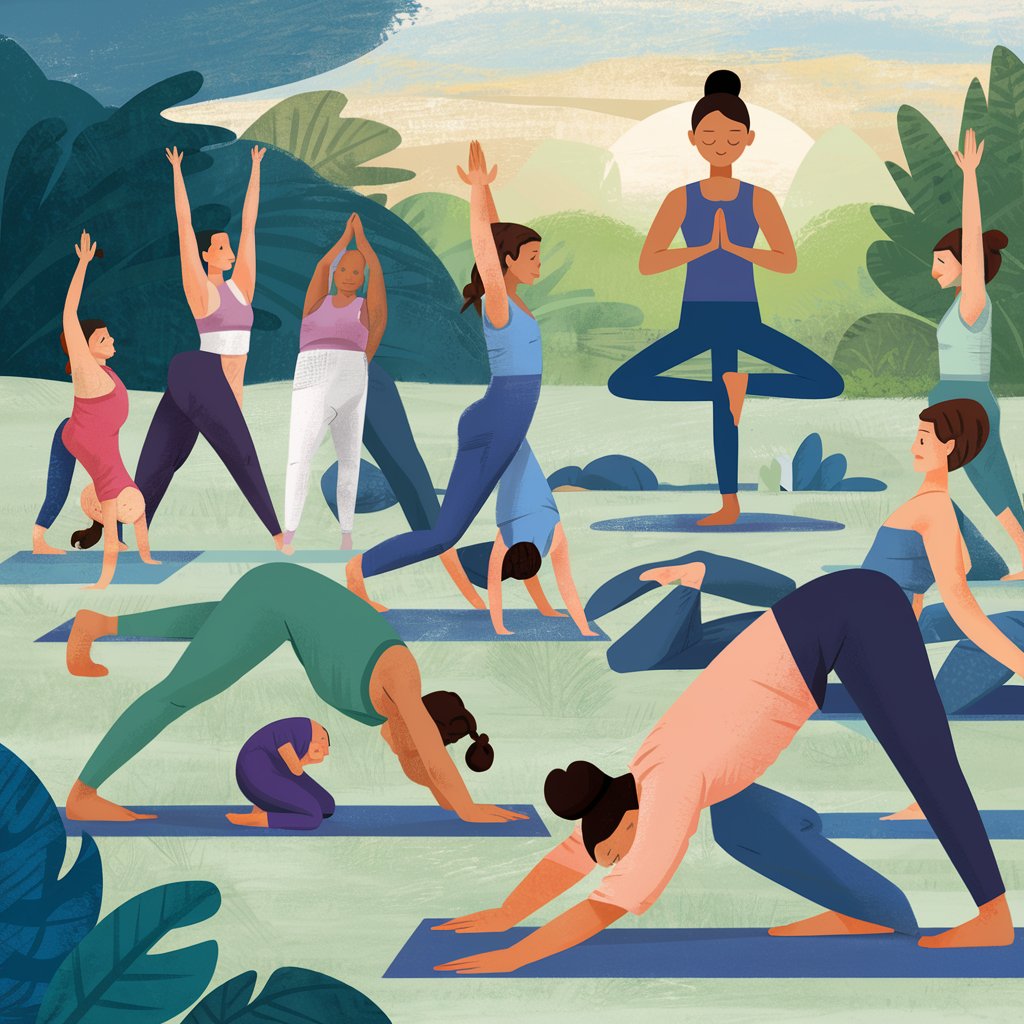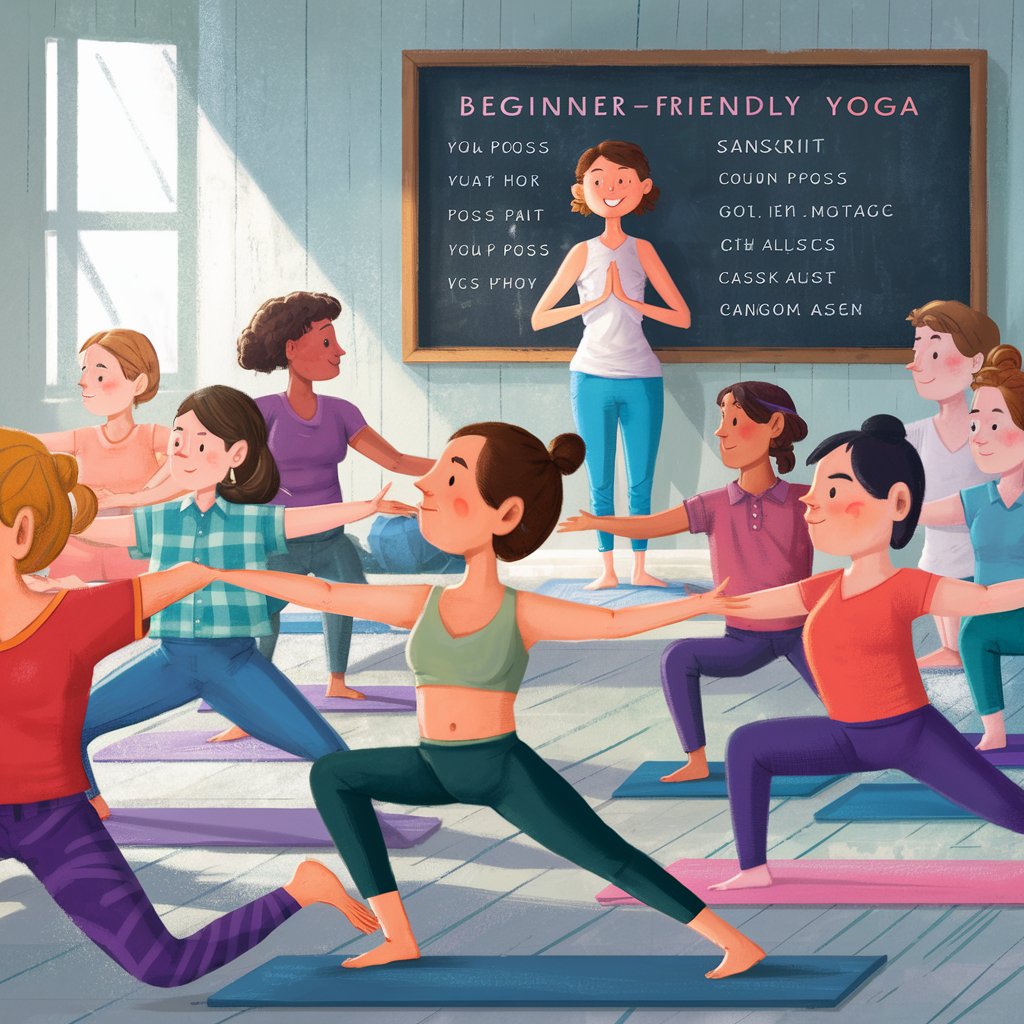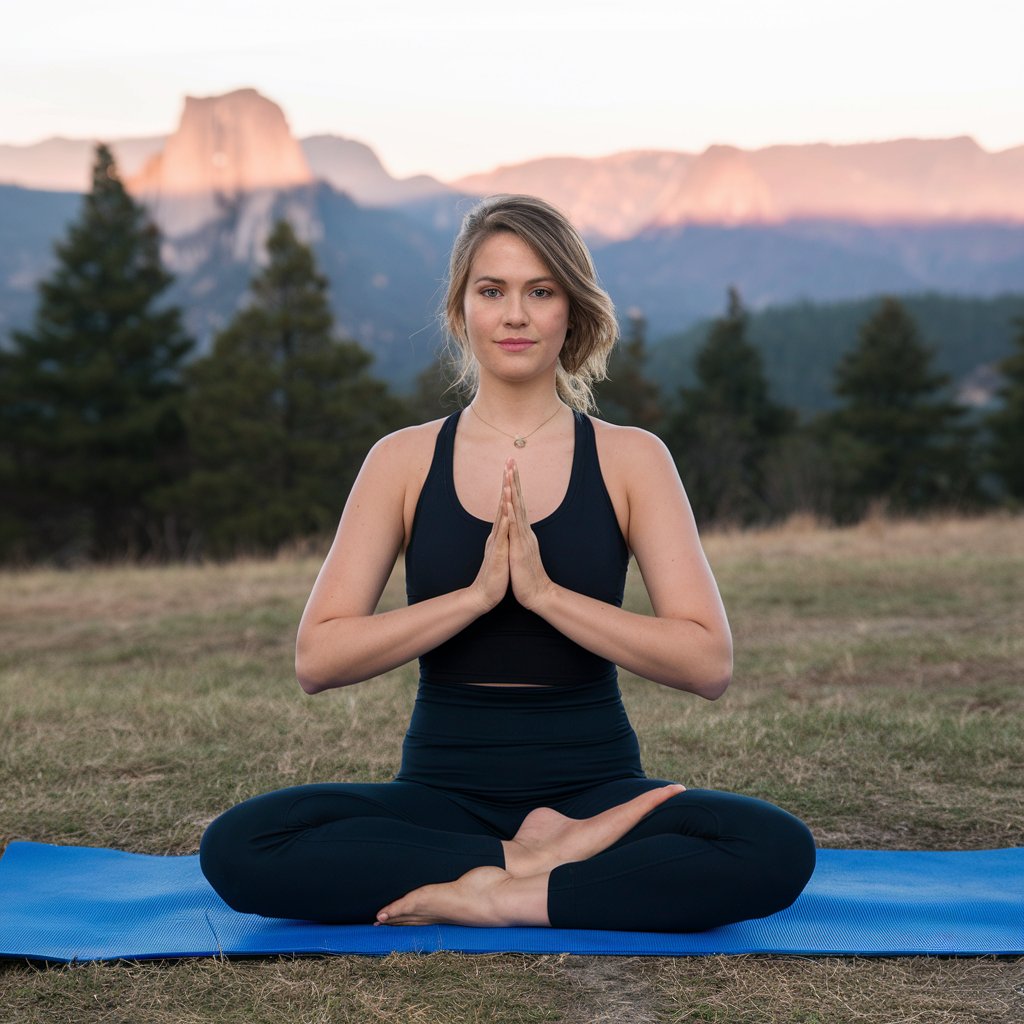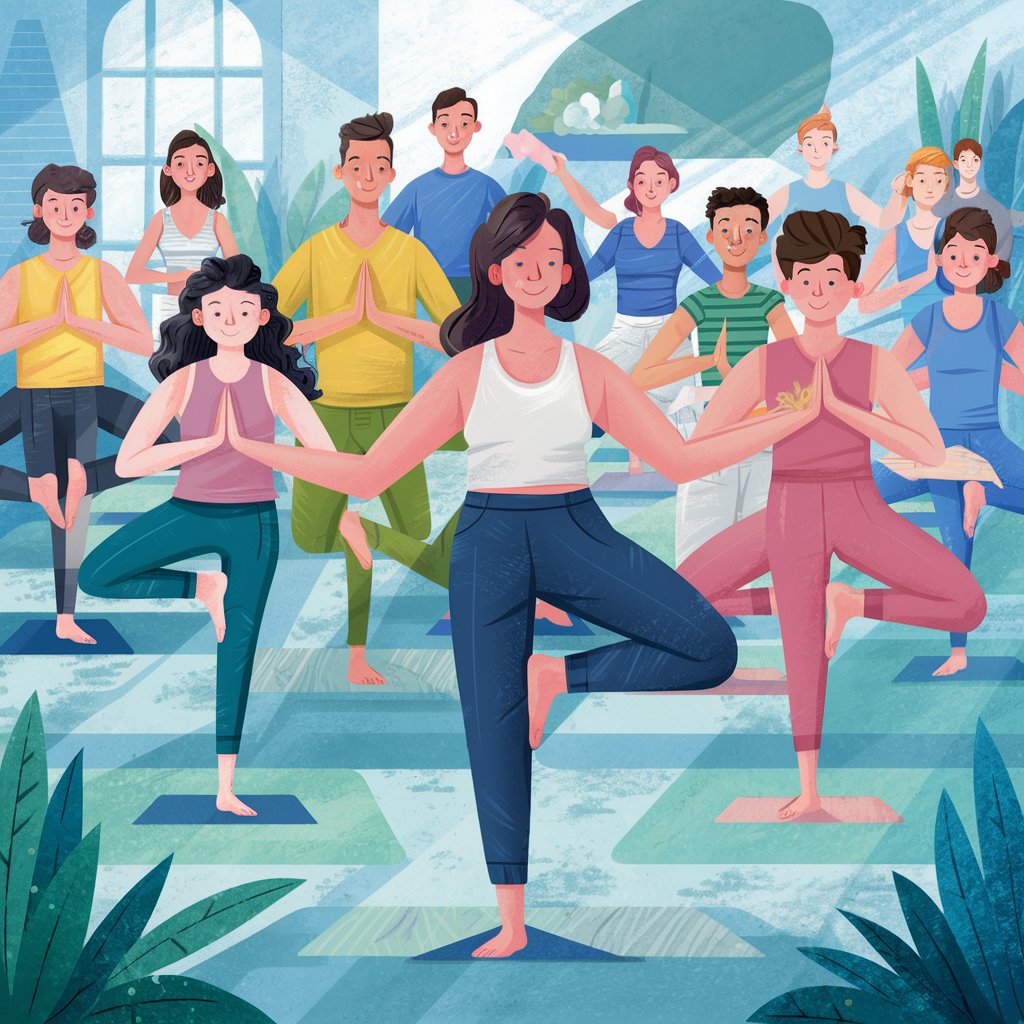Yoga for Beginners Embarking on a yoga journey can be both exciting and intimidating, especially for beginners. Yoga, an ancient practice rooted in Indian philosophy, offers a harmonious blend of physical postures, breathing exercises, and meditation. This comprehensive guide aims to make your introduction to yoga smooth and enjoyable, peppered with personal anecdotes and practical tips to help you start your practice with confidence and joy.
Table of Contents
Yoga for Beginners The Essence
Yoga is more than just physical exercise; it’s a holistic approach to health and well-being that integrates body, mind, and spirit. The word “yoga” itself means “union” in Sanskrit, symbolizing the connection between these elements. Whether you’re seeking physical fitness, mental clarity, or spiritual growth, yoga offers a path to achieve your goals.

Yoga for Beginners My First Encounter
I remember my first yoga class vividly. I was nervous and unsure of what to expect. As I walked into the serene studio filled with the scent of incense and the gentle hum of calming music, I felt a mix of curiosity and anxiety. The instructor’s warm smile and welcoming demeanor quickly put me at ease. She encouraged us to listen to our bodies and not to worry about achieving perfection. That day marked the beginning of my love affair with yoga, a journey that has profoundly impacted my life.
Yoga for Beginners The Benefits
Yoga offers a plethora of benefits that cater to various aspects of our well-being:
- Physical Health: Yoga improves flexibility, strength, and balance. Regular practice can alleviate chronic pain, enhance cardiovascular health, and boost the immune system.
- Mental Clarity: Yoga reduces stress and anxiety by promoting relaxation and mindfulness. It encourages a focused mind and enhances cognitive function.
- Emotional Stability: Yoga fosters self-awareness and emotional resilience. It helps in managing emotions and developing a positive outlook on life.
- Spiritual Growth: For many, yoga is a spiritual journey. It cultivates a deeper connection with oneself and the universe, fostering a sense of inner peace and purpose.
Yoga for Beginners Getting Started
1. Choose the Right Type of Yoga
There are various styles of yoga, each with its unique focus and benefits. As a beginner, it’s essential to find a style that resonates with you. Here are a few popular options:
- Hatha Yoga: Ideal for beginners, Hatha yoga focuses on basic postures and breathing techniques, providing a gentle introduction to the practice.
- Vinyasa Yoga: Known for its dynamic flow, Vinyasa yoga links breath with movement, offering a more vigorous workout.
- Yin Yoga: This slow-paced style involves holding postures for extended periods, targeting deep connective tissues and promoting relaxation.
- Ashtanga Yoga: A structured, physically demanding practice that follows a specific sequence of postures, suitable for those looking for a challenge.
2. Gather Your Gear
You don’t need much to start practicing yoga. Here are some essentials:
- Yoga Mat: Invest in a good-quality mat that provides cushioning and support.
- Comfortable Clothing: Wear breathable, stretchy clothes that allow free movement.
- Props: Blocks, straps, and bolsters can enhance your practice, especially if you’re a beginner.
3. Find a Good Instructor
A knowledgeable and compassionate instructor can make a significant difference in your yoga journey. Look for someone who:
- Explains postures clearly and provides modifications.
- Encourages questions and fosters a supportive environment.
- Emphasizes the importance of breath and alignment.

Yoga for beginners
Basic Yoga Poses for Beginners
Here are some foundational poses to get you started:
1. Mountain Pose (Tadasana)
Mountain Pose is a grounding posture that teaches proper alignment and balance.
- Stand tall with your feet together, arms at your sides.
- Distribute your weight evenly across your feet.
- Engage your thighs and lift your kneecaps.
- Lengthen your spine and roll your shoulders back.
- Take deep breaths and hold for 1-2 minutes.
2.
Basic Yoga
Dog (Adho Mukha Svanasana)
This pose stretches the entire body and strengthens the arms and legs.
- Start on your hands and knees.
- Lift your hips towards the ceiling, straightening your legs.
- Press your heels towards the ground and spread your fingers wide.
- Relax your head and neck, and hold for 1-3 minutes.
3. Warrior I (Virabhadrasana I)
Warrior I builds strength and stamina while improving balance.
- Stand with your feet hip-width apart.
- Step your left foot back and turn it out at a 45-degree angle.
- Bend your right knee, keeping it over your ankle.
- Raise your arms overhead, palms facing each other.
- Hold for 1-2 minutes, then switch sides.
4. Child’s Pose (Balasana)
Child’s Pose is a restful posture that calms the mind and relieves tension.
- Kneel on the floor with your big toes touching and knees wide apart.
- Sit back on your heels and extend your arms forward.
- Rest your forehead on the mat and breathe deeply.
- Hold for 2-5 minutes.
Tips for a Successful Yoga Practice
1. Start Slow
Begin with shorter sessions and gradually increase the duration as you become more comfortable. Consistency is key; even a few minutes of daily practice can yield significant benefits.
2. Listen to Your Body
Yoga is a personal journey. Avoid comparing yourself to others and focus on your progress. If a pose feels uncomfortable or painful, modify it or skip it altogether.

3. Incorporate Breathwork
Breath is the cornerstone of yoga. Practice deep, mindful breathing Yoga for beginners to enhance your physical postures and cultivate a sense of calm.
4. Create a Dedicated Space
Yoga for beginners Designate a quiet, clutter-free space for your practice. This can help you cultivate a routine and make your practice more enjoyable.
The Transformative Power of Yoga
Yoga for beginners As you delve deeper into your yoga practice, you’ll likely notice changes beyond the physical. Yoga has a profound ability to transform our perception of ourselves and the world around us. My journey with yoga has taught me patience, resilience, and the importance of self-care. It’s a practice that extends far beyond the mat, influencing my daily life and interactions.
Conclusion
Starting yoga as a beginner can be a life-changing experience. With its myriad benefits, yoga offers a path to improved physical health, mental clarity, and emotional well-being. Remember, the most important aspect of yoga is the journey itself. Embrace it with an open heart and mind, and you’ll discover a practice that nourishes your body, mind, and soul. Whether you seek physical fitness, stress relief, or spiritual growth, yoga has something to offer everyone. So, roll out your mat, take a deep breath, and embark on this beautiful journey to inner peace and well-being. Namast


